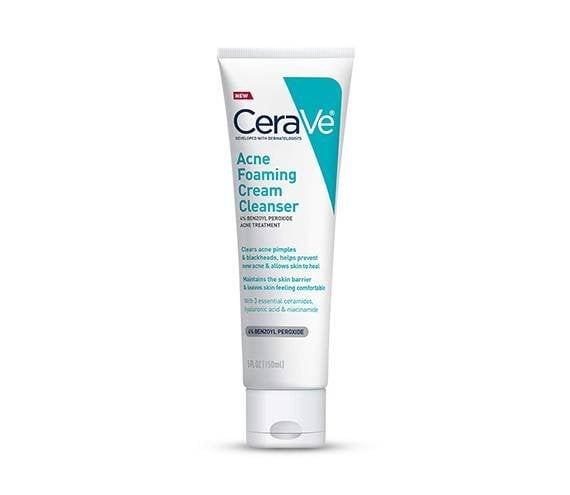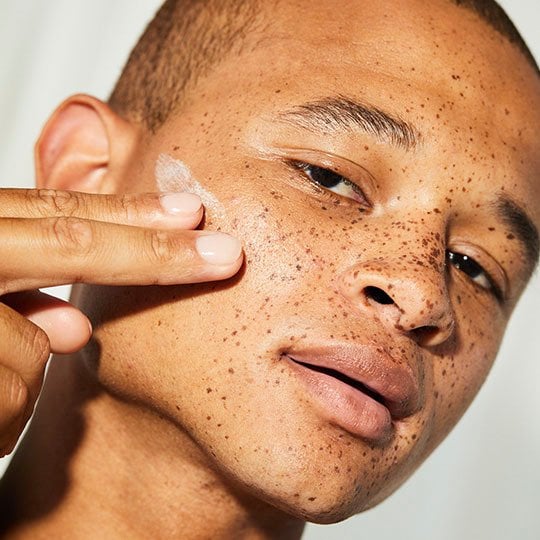5 Household Items That Could Be Causing Your Acne
September 20, 2021
You cleanse, exfoliate, and moisturize religiously, you avoid harsh formulas like the plague, and you do your best not to pop stray pimples. Your skincare routine is by most accounts unblemished — so it seems, anyway. But if you’re still dealing with persistent acne, there may be some easy fixes you can make around your home to stop the breakouts in their tracks. Below, we spoke to Dr. Dendy Engelman, a board-certified dermatologist based in New York City, about the five household items that could be irritating your skin.
Oily Pillowcases
“Anything that transfers dirt and oil to your skin — like your pillowcase — can lead to acne and skin irritations,” says Engelman. “This is called acne mechanica, a type of acne that is the result of materials or objects touching your face. When you allow your pillowcase to remain unlaundered, you risk a buildup of hair product and makeup residue, dirt, dead skin cells, oil and anything else from the environment that your skin could have come in contact with to transfer onto your skin.” She suggests washing your pillowcase every other week or switching pillowcases before going to bed after heavy product use.
It can also be helpful to wash your face with an acne-fighting face wash, such as the CeraVe Acne Foaming Cream Cleanser. This product contains benzoyl peroxide to dry out existing breakouts and help prevent new ones from forming.

Dirty Cell Phones
“Cell phones can lead to breakouts the same way a dirty pillowcase can,” says Engelman. “In fact, there might be even more bacteria on your phone since you’re out and about with it all day. Throughout the day, our hands come into contact with so many things — from doors to pens to keyboards — that it’s hard to even keep track.” When you go from touching your phone to your face, you’re transferring all that bacteria to your face. Dr. Engelman recommends touching your face as little as possible, as well as cleaning your phone every night with an antibacterial wipe.
Filthy Makeup Brushes
We know it’s a drag to clean your makeup brushes, but it’s a key step to maintaining clear skin. “After you use a makeup brush, it collects oil and dead skin cells,” says Engelman. “You then leave it out or place it inside your cosmetics case where it can also collect dust, bacteria, and whatever else you just sprayed in the room. When you use that same brush the next day, you have essentially put all that back on your face and matted it in with foundation. You’ve created an environment for bacteria to fester.” We recommend giving your brushes a deep clean every two weeks with the Real Techniques Brush Cleansing Balm. Also pay special attention to makeup sponges — because you use them damp, it’s very easy for them to harbor irritating bacteria.
Grimey Loofahs
Suffering from body acne? Loofahs can be breeding grounds for bacteria, Dr. Engelman says. If you use one, be sure to change it at least once a month and store it somewhere cool and dry when it’s not in use.
Unwashed Bedding
Just like your pillowcase, “dirty blankets, sheets, towels, scarves — anything that comes into contact with skin — can lead to breakouts,” says Dr. Engelman. Try to wash or change your bedding at least every other week.
Photo: Chaunte Vaughn
Read More:
This Is Why You Break Out Before Your Period
Our Guide to a Post-Summer Skin Detox
A 5-Step Skincare Routine for Sensitive Skin




.jpg?cx=0.490000009536743&cy=0.540000021457672&cw=150&ch=120&blr=False&hash=0B0F55675A6B9FE3724F6E2EC9118A01)









.jpg?cx=0.490000009536743&cy=0.540000021457672&cw=150&ch=120&blr=False&hash=5E78490B76BBC8CC9D76D2EBDFF515E0)










